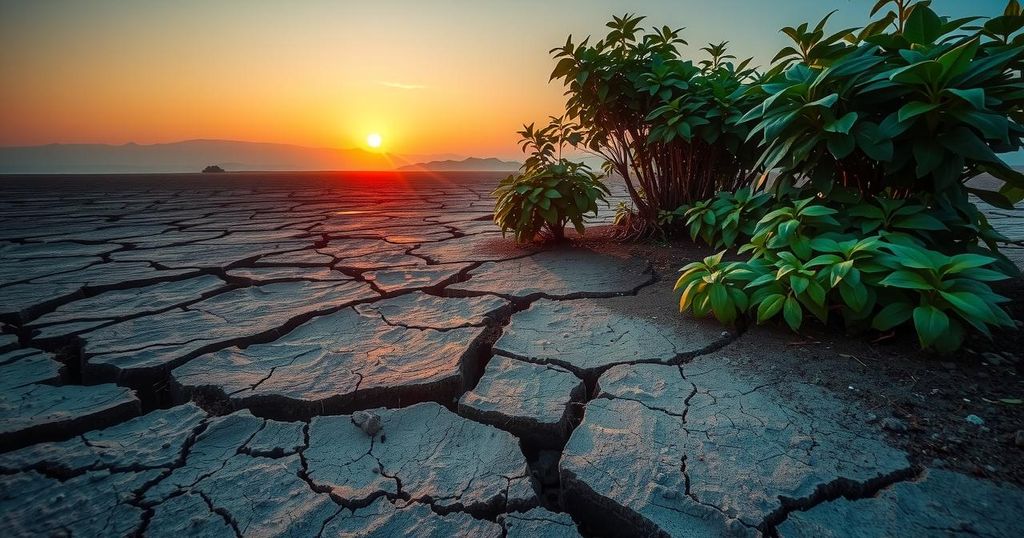Climate Risk Index 2025: Emphasizing Urgent Action for Pakistan’s Climate Resilience
The Climate Risk Index 2025 report by Germanwatch highlights the serious impacts of climate change, particularly emphasizing Pakistan’s vulnerability. It reveals devastating economic and human losses from extreme weather events, urges critical investments in resilience, and connects climate change to broader security issues. The report calls for urgent action to address climate risks and promote sustainable development.
The Climate Risk Index (CRI) 2025, released by Germanwatch in February 2025, underscores the intensifying effects of climate change and highlights the urgent necessity for improved resilience measures. It evaluates data from 1993 to 2022, focusing on annual averages over three decades. This index, operational since 2006, assesses how extreme weather events impact countries, particularly examining the repercussions of these climate risks.
The CRI categorizes countries into two distinct groups: those experiencing sporadic extreme events and those facing ongoing threats. China, India, the Philippines, and Pakistan fall under the latter category, continuously confronting climate-related hazards. The report indicates that inaction with respect to climate change has resulted in significant human and economic losses, including over 765,000 fatalities globally and nearly $4.2 trillion in damages from more than 9,400 extreme weather occurrences.
In the overall ranking from 1993 to 2022, Dominica, China, and Honduras ranked as the most affected by extreme weather, but the 2022 data depicts a particularly bleak situation for Pakistan, Belize, and Italy. Pakistan, in particular, is noted for extraordinary relative economic losses, especially following the heavy monsoon season from June to September 2022, which resulted in catastrophic floods affecting over 33 million individuals and incurring nearly $15 billion in damages.
The floods in Pakistan during 2022 demonstrated the country’s extreme vulnerability to climate change, despite its minimal contribution to global greenhouse gas emissions. According to a flood impact assessment, “The 2022 floods have shown Pakistan’s high vulnerability to climate change despite contributing less than one percent of global greenhouse gas emissions.” The World Bank indicated in October 2022 that reconstruction costs could exceed $16 billion, marking this disaster as one of the most expensive in history, compounded by intensified monsoon rainfall.
The floods exacerbated existing gender disparities in Pakistan, affecting women’s livelihoods, particularly in agriculture, and increasing their susceptibility to gender-based violence amid displacement. Extreme heat events have also surged in frequency, complicating the climate resilience landscape. The CRI report utilizes data from the IPCC Sixth Assessment Report, calling for a renewed focus on resilience-building efforts.
The report stresses that urgent action is required for achieving Sustainable Development Goals (SDGs), particularly SDG 13 regarding climate action. Progress remains stunted, and the rising frequency of extreme weather events continues to jeopardize food and water security, hindering overall SDG advancement. The interconnection between climate change and security is also discussed, noting that the impacts challenge individual wellbeing and national stability.
Climate change may catalyze conflict through shifts in economic conditions, demographic changes, and political instability, posing heightened risks in regions marked by ethnic tension. Effective governance and risk management frameworks are deemed essential, with the implementation of initiatives like the Sendai Framework and National Adaptation Plans. Financial support for resilience remains insufficient, raising concerns about meeting adaptation needs, as COP29’s New Collective Quantified Goal has been criticized for its vague commitment.
Looking forward, the IPCC projects heightened vulnerability, especially in locations where infrastructure and basic services are lacking. From 1993 to 2022, storms, heatwaves, and floods have been primary causes of climate-related fatalities, with significant economic losses attributed predominantly to storms. The CRI indicates that a lack of ambition in climate mitigation leaves even wealthy nations exposed to severe impacts, necessitating stronger policies and enhanced climate targets to limit global warming.
The findings underscore the need for Pakistan to refine its climate resilience strategies by detailing vulnerabilities and economic losses associated with extreme weather. Policymakers can leverage this data to drive prioritized investments in resilient infrastructure and effective disaster preparedness. The comprehensive analysis aims to support informed decision-making, influencing federal and provincial efforts to mitigate risks and promote sustainable development throughout the nation.
The Climate Risk Index 2025 reveals the increasing impacts of climate change, particularly on vulnerable countries like Pakistan. The report emphasizes the necessity of enhanced resilience measures, greater investments in infrastructure, and effective governance to combat the ongoing climate crisis and its associated challenges. Urgent action is required to secure financial support for adaptation and to address the disparate effects of climate change across different sectors of society.
Original Source: www.thenews.com.pk




Post Comment